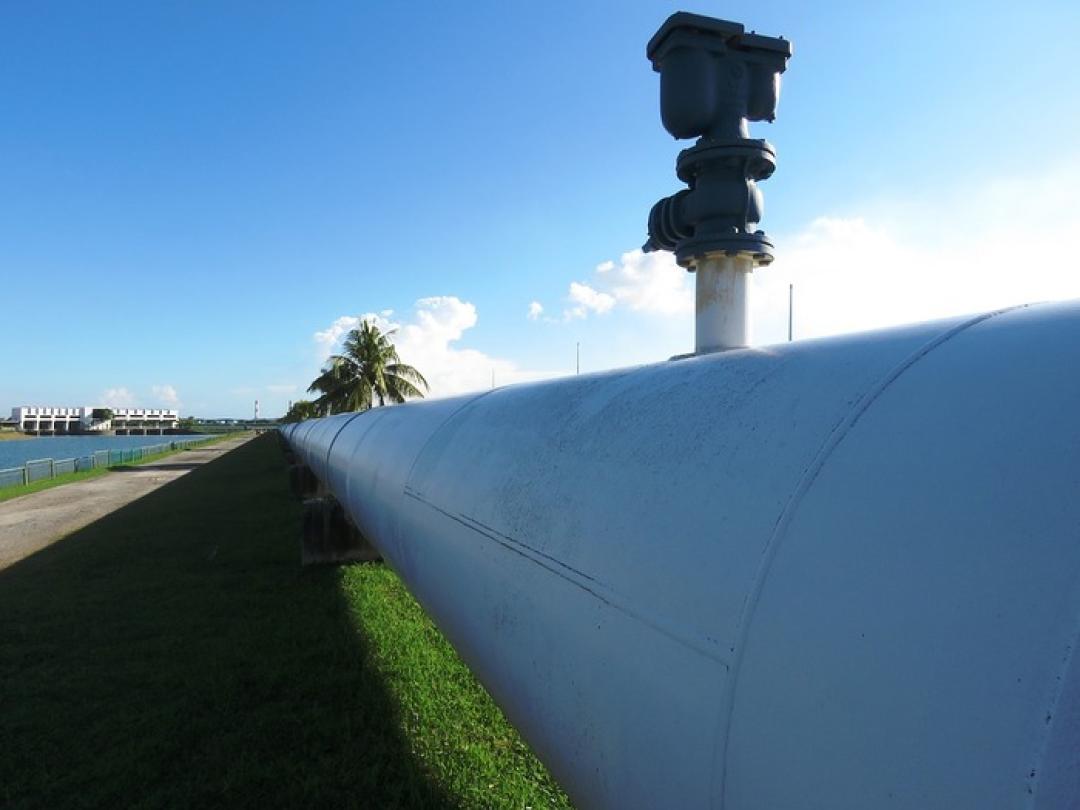
Ilham Aliyev Attends Inauguration of Greece-Bulgaria Gas Interconnector in Sofia

On October 1, the opening ceremony of the Greece-Bulgaria Gas Interconnector (IGB) was held in Sofia, the capital of Bulgaria, the Press Office of the Azerbaijani President reported. The event was attended by Presidents Ilham Aliyev of Azerbaijan, Rumen Radev of Bulgaria, Ursula von der Leyden of the European Commission, Kadri Simson of the European Union (EU), Stevo Pendarovski of the Republic of North Macedonia, Aleksandar Vučić of Serbia, and Kyriakos Mitsotakis of Greece Romanian Prime Minister Nicolae Ciucă, and ICGB executive directors Teodora Georgieva and George Satlas.
President Aliyev stated that Azerbaijan exported approximately 19 billion cubic meters of natural gas last year, with 8.2 billion cubic meters transported to Europe, a 40% increase over the previous year. "This year, our gas exports will exceed 22 billion cubic meters, of which 11.5 billion will go to European consumers. As I mentioned, during the visit of Ms. Ursula von der Leyen to Azerbaijan in July of this year, we signed a Memorandum of Understanding with the European Commission. This is a very comprehensive document. Based on this, we plan to double our natural gas supply to Europe by 2027. We have all the possibilities for this," he said.
The Chairwoman of the European Commission reminded everyone that Bulgaria imported 80 percent of its gas from Russia until Russia declared war on Ukraine. "This was before the start of Russia's military war against Ukraine and the energy war against Europe. Today, this project seriously changes the situation regarding the energy security of both Bulgaria and Europe. This means the elimination of dependence on Russian gas; independence," she added. Ursula von der Leyden emphasized that the interconnector has the potential to export gas that will supply the whole of Bulgaria. "This is great news at a very difficult time. Both in Bulgaria and other regions of Europe, people are feeling the consequences of Russia's war. However, due to such projects, Europe will have gas supplies for the winter. Europe has worked hard in this direction, taking important steps, especially in the last few months, to replace Russian gas with alternative gas sources, that is, with more reliable sources and partners. President Ilham Aliyev of Azerbaijan is here, and I visited you in July for this purpose. Our friends and other partners, such as Norway, the United States, and Algeria, are helping us in this difficult time, " she noted.
The total length of the Greece-Bulgaria Gas Interconnector (IGB) is 182 kilometers, connecting the gas transmission networks of Bulgaria and Greece. The project was implemented by the Bulgarian-Greek investment company ICGB AD, registered in Bulgaria in 2011, together with the shareholders of Bulgaria's Energy Holding and Greece's IGI Poseidon, each of which has a 50 percent stake. The total cost of the interconnector is more than 240 million euros. In 2010, the European Commission allocated a grant of 45 million euros for feasibility studies and another payment of 35 million euros within the framework of the program implemented by Bulgaria. The European Investment Bank provided a loan of 110 million euros.
IGB will deliver natural gas from Azerbaijan's "Shahdeniz-2" field to Bulgaria. The Bulgarian state company "Bulgargaz EAD" has signed an agreement with the "Shahdeniz" consortium. The annual transmission capacity of the pipeline will be 3 billion cubic meters. In perspective, this indicator can be increased to 5 billion cubic meters per year. Thus, Azerbaijan's natural gas will meet 25–30 percent of Bulgaria's demand.
The transportation of Azerbaijani gas to Europe will begin at the end of 2020 with the commissioning of the last segment of the Southern Gas Corridor-TAP. Currently, Turkey, Georgia, Greece, Bulgaria, Albania, and Italy are buyers of Azerbaijani gas. The demand for Azerbaijani gas in Europe has been increasing since the beginning of the Russian-Ukrainian war, that is, against the background of new challenges.
See Also


Armenia Records 5.9% GDP Growth in 2024, Missing 7% Goal

Yerevan Balances Strategic Ties with Both US and Russia, Says Foreign Minister

FM Mirzoyan: Peace Deal with Azerbaijan Is Within Reach

Pashinyan and Erdogan Hold Call, Reaffirm Commitment to Ongoing Dialogue

